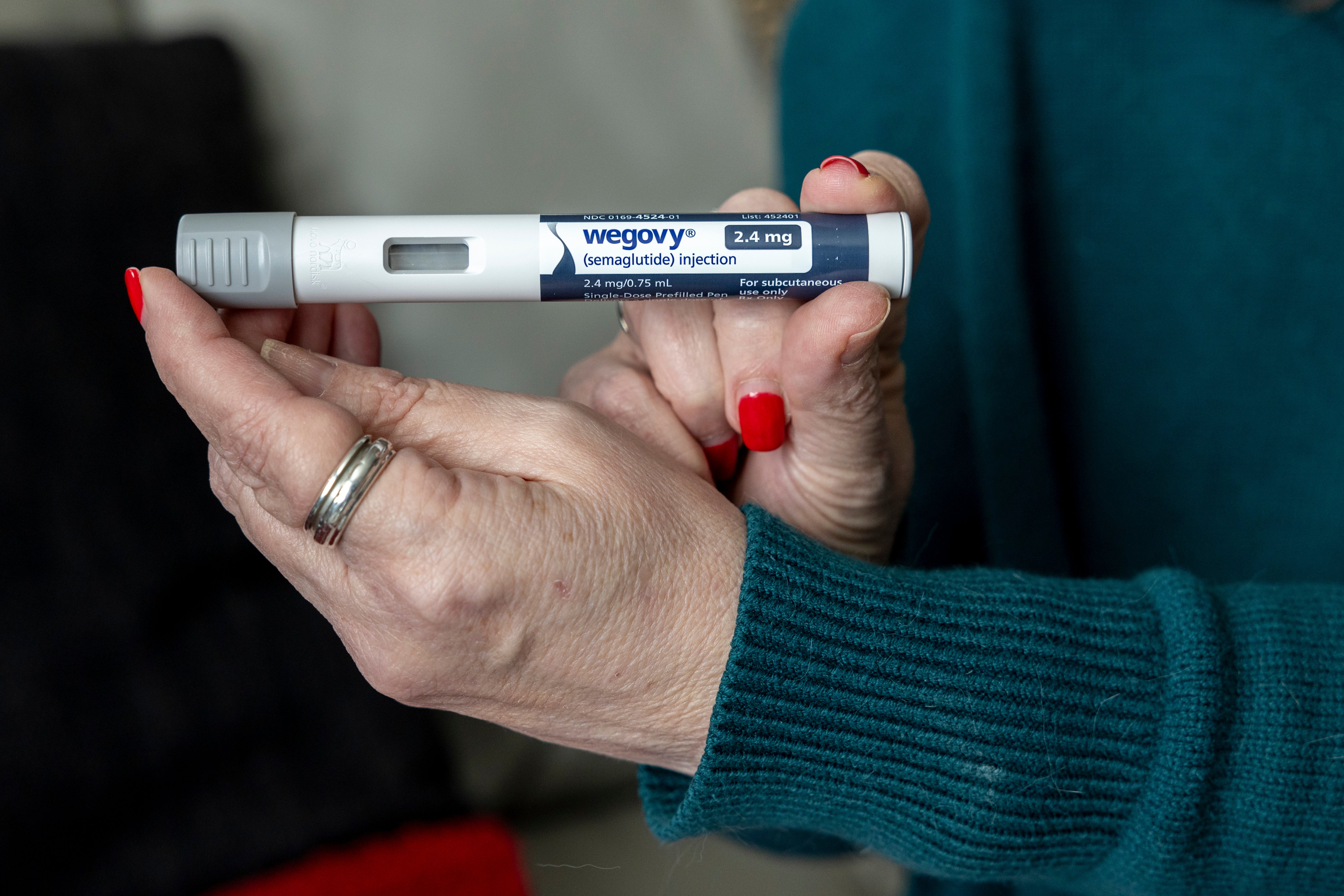Medicare can pay for obesity drugs like Wegovy in certain heart patients
Certain Medicare patients may get help paying for the popular weight-loss drug Wegovy, as long as they also have heart disease

Your support helps us to tell the story
From reproductive rights to climate change to Big Tech, The Independent is on the ground when the story is developing. Whether it's investigating the financials of Elon Musk's pro-Trump PAC or producing our latest documentary, 'The A Word', which shines a light on the American women fighting for reproductive rights, we know how important it is to parse out the facts from the messaging.
At such a critical moment in US history, we need reporters on the ground. Your donation allows us to keep sending journalists to speak to both sides of the story.
The Independent is trusted by Americans across the entire political spectrum. And unlike many other quality news outlets, we choose not to lock Americans out of our reporting and analysis with paywalls. We believe quality journalism should be available to everyone, paid for by those who can afford it.
Your support makes all the difference.Medicare can pay for the popular weight-loss drug Wegovy — as long as the patients using it also have heart disease and need to reduce the risk of future heart attacks, strokes and other serious problems, federal officials said Thursday.
The Centers for Medicare & Medicaid Services issued new guidance that says Medicare Part D drug benefit plans — which are offered through private insurers — could cover anti-obesity drugs that are approved for an additional use.
The move could pave the way for thousands of new prescriptions, resulting in billions of dollars in increased spending, analysts have said.
In practice, the guidance opens the door to wider coverage of Wegovy, the brand name of Novo Nordisk’s obesity medication semaglutide. The U.S. Food and Drug Administration this month approved a label change that allows Wegovy to be used to reduce the risk of cardiovascular events in people who are overweight or have obesity and also have existing heart disease.
Recent research showed that Wegovy cut the risk of heart attack, stroke and other problems by 20% versus a placebo, or dummy drug, in such patients. Cardiologists and other experts said use of semaglutide to reduce the risk of often fatal or disabling conditions could change the way heart patients are treated.
Wegovy carries a price tag of more than $1,300 a month, or $16,000 per year.
Part D plans could begin covering the drug “some time this year,” said Tricia Neuman, a Medicare policy specialist at KFF, a nonprofit that researches health policy.
“Medicare plans may be reluctant to move quickly to cover Wegovy given its relatively high price, particularly because they won’t be able to adjust premiums before next year,” she said.
Even if plans do allow coverage, people who meet the criteria may still face other restrictions. Plans may require higher out-of-pocket fees, prior authorizations or step therapy, in which a patient is required to try a lower-cost drug before proceeding to the new treatment, Neuman said.
Medicare Part D plans are prohibited by law from covering obesity medications used for chronic weight management alone, and that would not change, CMS officials said.
Private insurers are evaluating the guidance — and the new indication for Wegovy — before making coverage decisions, said a spokesperson for AHIP, America’s Health Insurance Plans, an industry trade group.
Drugmakers and obesity advocates have been pushing for expanded coverage, including legislation that would require Medicare to pay for the obesity drugs.
At issue has been whether the cost of the expensive medications will be offset by the savings of reduced spending on medical care related to obesity — and, now, heart disease.
One lingering obstacle to broader use is limited supply of the drug, which has been in shortage for more than a year, according to the FDA. Novo Nordisk officials say they’re working to increase production and access.
___
The Associated Press Health and Science Department receives support from the Howard Hughes Medical Institute’s Science and Educational Media Group. The AP is solely responsible for all content.